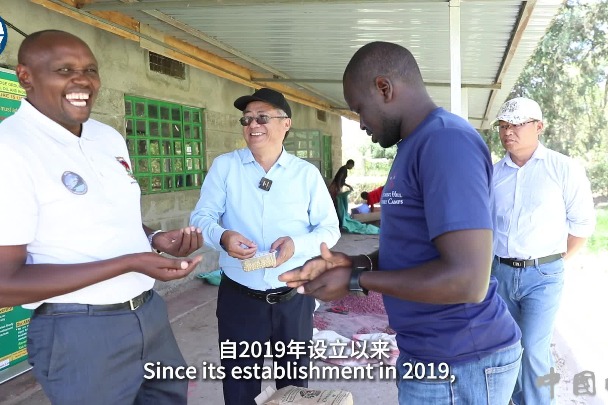China and Africa boost exchanges of TV programs

China and Africa are deepening cooperation in audiovisual production and more exchanges of television series and programs are expected, government officials, radio and TV station heads, and experts said at the 6th Forum on China-Africa Media Cooperation and China-Africa Think Tank High-level Dialogue in Beijing on Wednesday.
According to the National Radio and Television Administration of China, 237 audiovisual works and 180 agricultural programs had been translated into seven languages and broadcast in Africa by the end of last year.
Cao Shumin, director of the administration, said at the forum that China has signed agreements with 28 African countries to enhance cooperation in the fields of radio, television and film.
She said the collaboration will be further strengthened through a range of supportive policies, which encourage the joint production of programs, TV series and shows by companies from both sides, fund short-film competitions and promote the exchange of programs.
Earlier this month, iQiyi and Youku, China's leading streaming platforms, created special sections to present TV series, documentaries and shows featuring China-Africa content.
At the beginning of this month, a Swahili-dubbed version of the Chinese TV series Welcome to Milele premiered on some African TV stations and online video-sharing platforms, reaching viewers in Kenya, Tanzania, Malawi, Rwanda, Zimbabwe and Uganda. It tells the story of Chinese medical teams dispatched to work in Africa.
Ayanda Hollow, president of TV BRICs Africa, a multigenre television channel covering all African nations, said he is very confident about future exchanges and cooperation between media groups from China and Africa.
Last year, his channel introduced the popular Chinese sci-fi series Three-Body, which was produced by streaming giant Tencent. The series was met with such enthusiasm that audiences in Africa have requested it be rebroadcast this year.
Hollow said that Chinese agricultural programs are also popular. Apart from introducing Chinese TV series and programs to Africa, he hopes to cooperate with his Chinese counterparts on joint productions. During his trips to China this year, he has talked with iQiyi and Beijing TV about future cooperation.
"I really hope to see programs produced by Africans aired in China," he said. "We are eager to tell good stories by ourselves with China's help."
Hollow said many young people in Africa are using online video-sharing platforms such as TikTok to show their talent and spread stories in Africa.
"More than half the people in Africa are under 30 years old," he said. "They're interested in using the internet to show their stories. I expect that China and Africa will have more cooperation on media technologies."
- News
- China launches international cooperation initiative in open science with Brazil, South Africa, African Union
- China to send 1,500 packs of sports equipment to several BRI countries
- China's agricultural innovation helps African farmers increase yield, income
- Chinese medical team in Namibia promotes child health on World Children's Day




